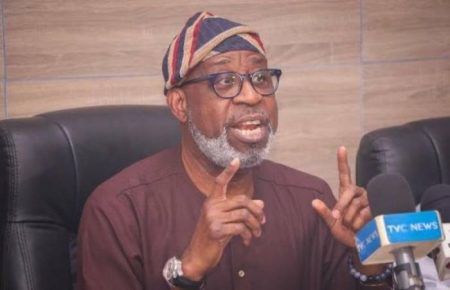
Oscarline Onwuemenyi
11 July 2017, Sweetcrude, Abuja – The Ministry of Mines and Steel Development has stated that the mining and minerals sector will contribute $27 billion (about N9.7trillion) to the Gross Domestic Product (GDP) by 2025.
The ministry’s claim was contained in the latest Solid Minerals Development Road Map, which was recently unveiled in Abuja over the weekend, adding that the contribution would be achieved in three phases.
It stated that phase one was to stabilise the sector and rebuild the country’s market confidence between 2016 and 2018.
According to document, the second phase will focus on establishing Nigeria as a competitive African mining and mineral processing centre from 2016 to 2020.
The ministry said the third phase would will enable Nigeria compete in the global market for refined metals and minerals from 2018 to 2030 in addition to selected ore exportation. It said that at the end of the third phase, Nigeria would have built a sustainable, globally competitive mining sector and related processing industry.
The ministry expressed the commitment to use the finite mineral resources in the country to improve the quality of life of Nigerians and earn healthy returns for the mining investor.
It added that its ambition was to be consistent with the tone set for national development expected to create the right conditions for minerals and mining success in the coming decades.
“If well executed, the ambition, combined with realistic plan can unlock value for the Nigerian people with the potential to contribute to the GDP through its significant multiplying effect,” it said.
Speaking recently on the policy road map, the Minister of Mines and Steel Development, Dr. Kayode Fayemi, described the document as a strategic framework that will set a pathway for a viable mining industry in Nigeria.
He noted that Nigeria presently had 44 minerals, of which 7 are of commercial quantity that needs to be developed to drive the industrial base.
Elaborating further on the road map, Fayemi highlighted the key features and focus to include; A strategic plan to coordinate the entire solid minerals value chain, increased regulatory environment that will be favourable to the businesses, ensuring effective partnership between the federal and state government and a broad geosciences database that is bankable.
Fayemi admitted that with the current structure which makes mining exclusive to the Federal government, it was crucial for states to adopt a “Joint Ventures” approach with the private sector to apply for mining leases.
On ensuring transparency and accountability in the industry, the minister assured stakeholders that the “Mining and Minerals Act”, will be enforced to the fullest with all the attendant provisions.
Considering the challenges of financing, he asserted that the ministry has engaged the Central bank to encourage the establishment of mining desks in Nigerian banks, even as it plans a solid minerals fund that should eventually lead to a mining bank.
The minister identified the issues of illegal mining in the country, adding that the road map will explore avenues to actively engage artisanal miners, thereby reducing the incidence.
In the area of the emerging mining and mineral landscape, the minister stressed that developing industrial minerals to support import substitution and manufacturing, will constitute part of the core focus of the ministry.
The 7 strategic solid minerals of commercial quantity identified by the ministry for development are coal, limestone, lead/zinc, bitumen, barytes, gold and iron ore.



